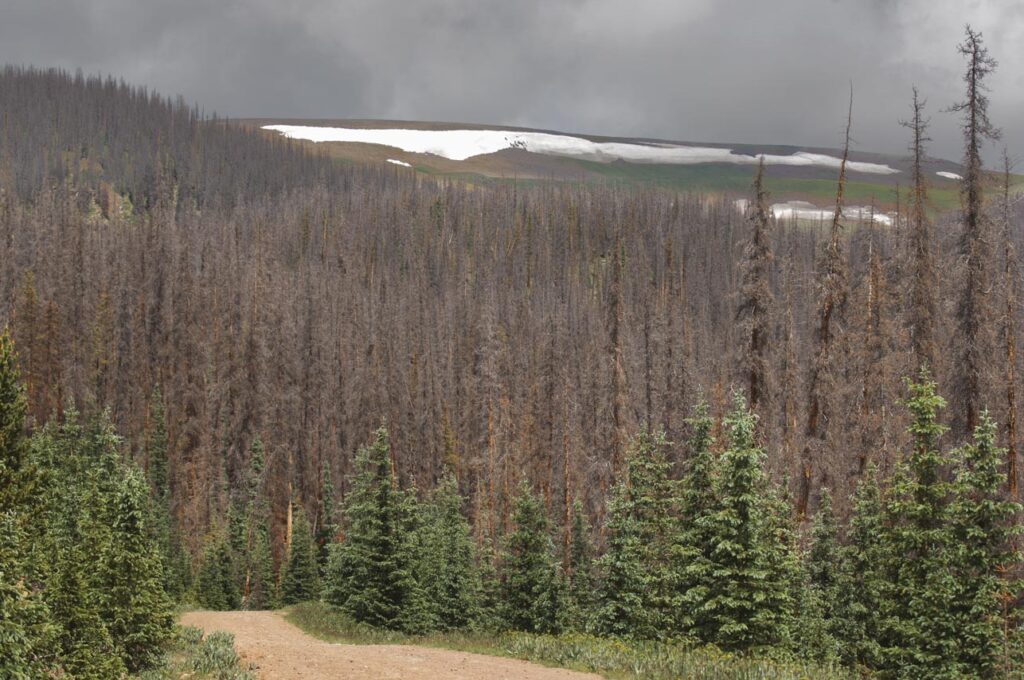
Instagram Filming Logs: Beetles, Fire and Regeneration Failure, September 2023 – Central Rockies Bruce Melton, ClimateDiscovery.org (Instagram logs with photos and video are below the summary.) Across the Central Rockies from the San Juans to Rocky Mountain National Park, beetle attacks are growing again. The beetles and impacted trees are changing though. Gone are the…





